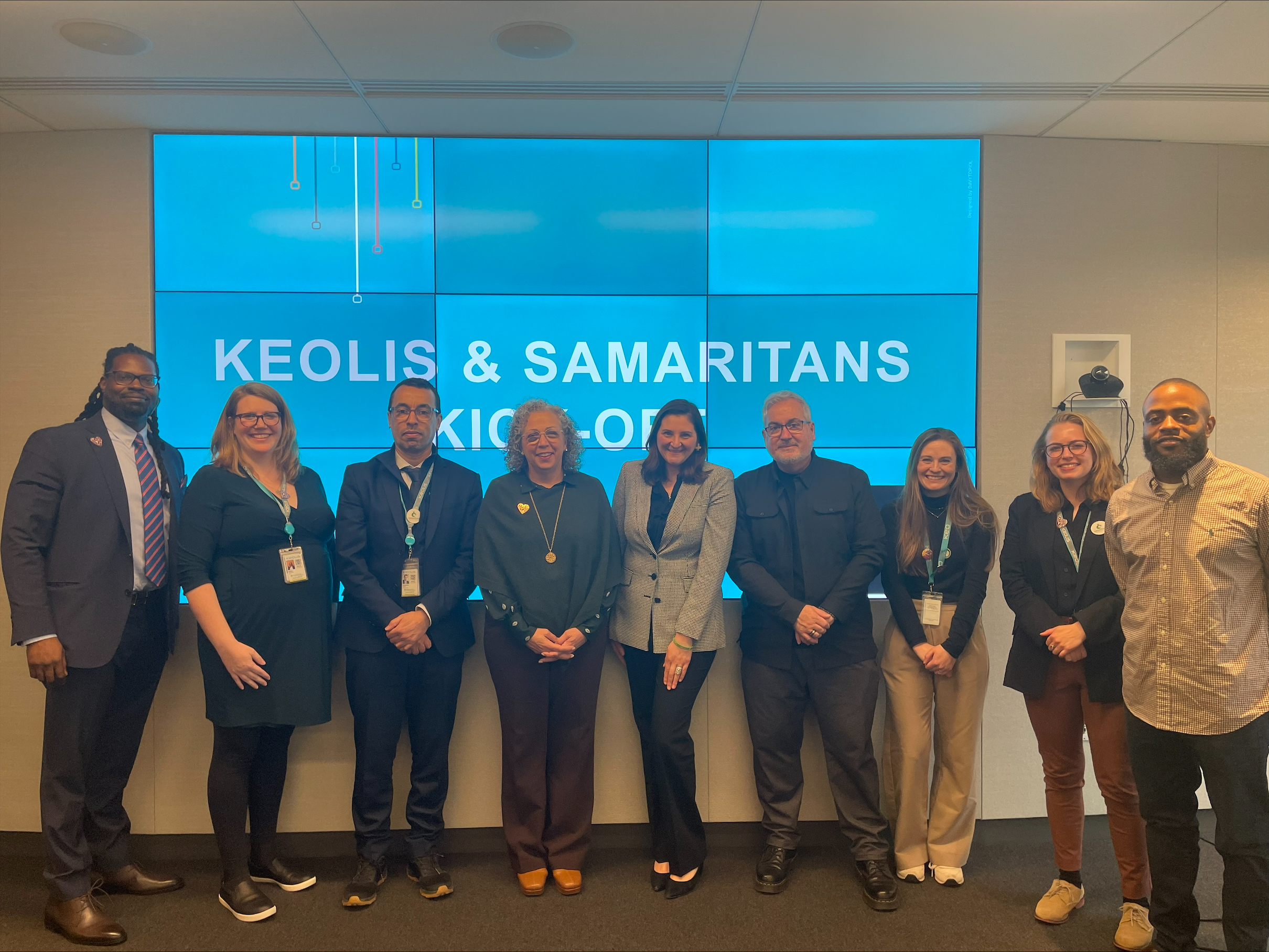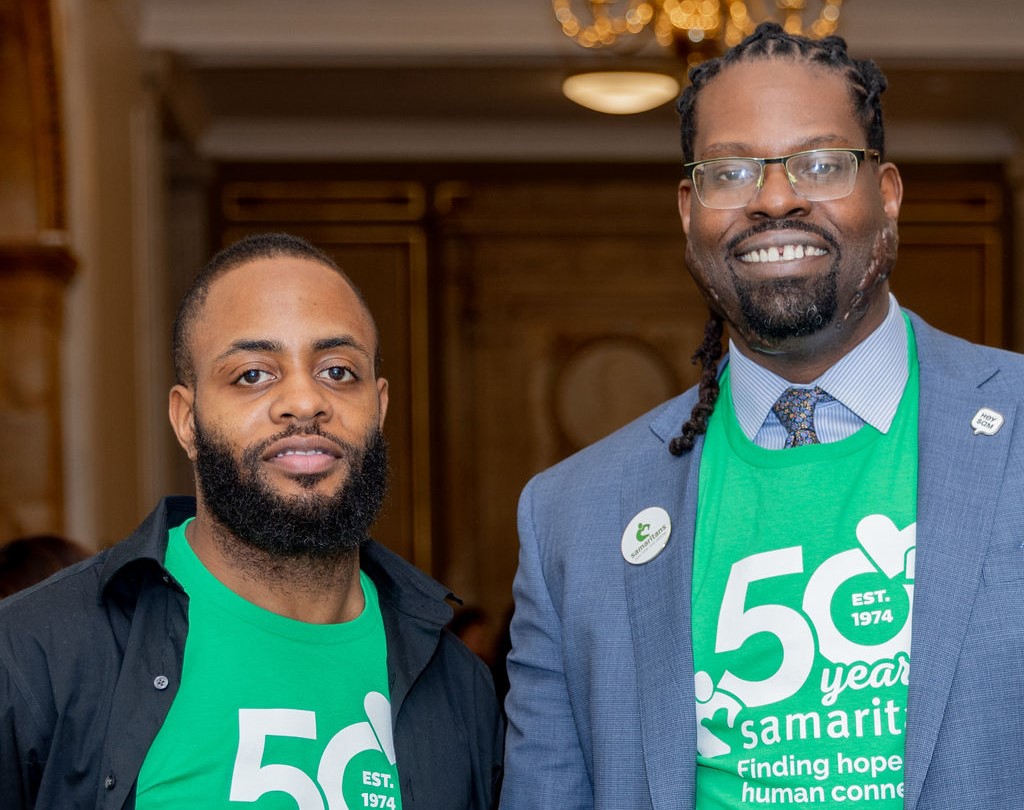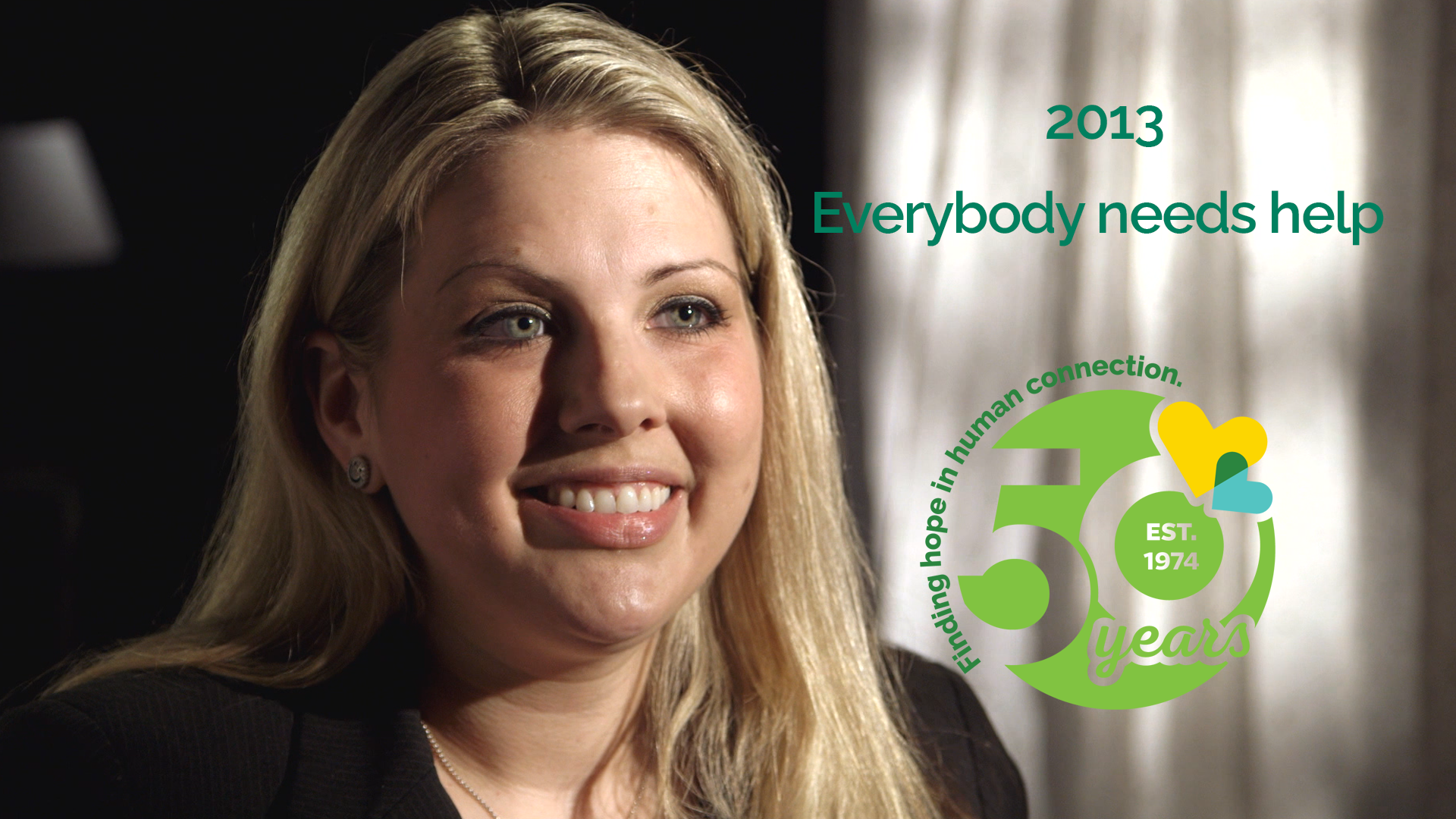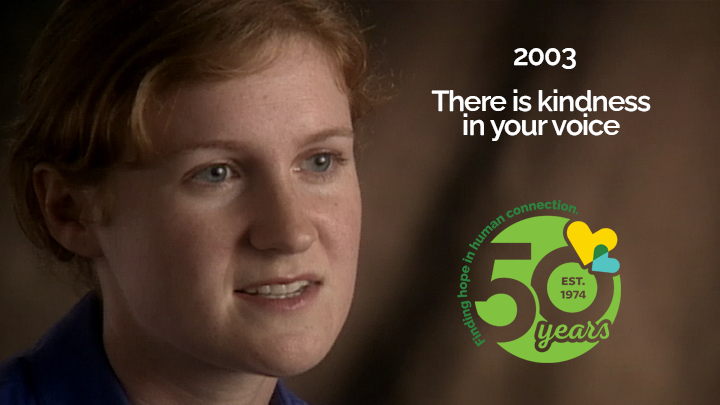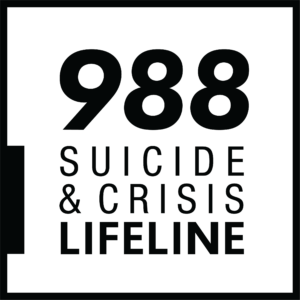Running for Someone Else’s Life — that was the name of the Samaritans 5K Run/Walk for Suicide Prevention when it began a quarter of a century ago.
This year, we are celebrating the 25th annual Samaritans 5K. Started in 1999, this race was born from the idea of creating a space that would allow suicide loss survivors to honor their loved ones, while also inviting the wider Boston community to connect with the Samaritans mission.
Since then, the 5K has grown to to more than 1,500 runners in 2022, and raised nearly $600,000 for suicide prevention last year alone. It is rare to see a community race endure for 25 years, especially with consistent participation and growing popularity each year. This longevity and loyalty is evidence of the magic of this annual event.
Dr. Ruben Azocar — a Samaritans board member, Thomas (Tom 238) Burke — a Helpline volunteer, and Joe Shapiro — a Samaritans Council member, have been participating in our 5K nearly since its inception. We took the time to speak with them to learn more about how they have seen this race evolve and grow in its magic over the last quarter century.
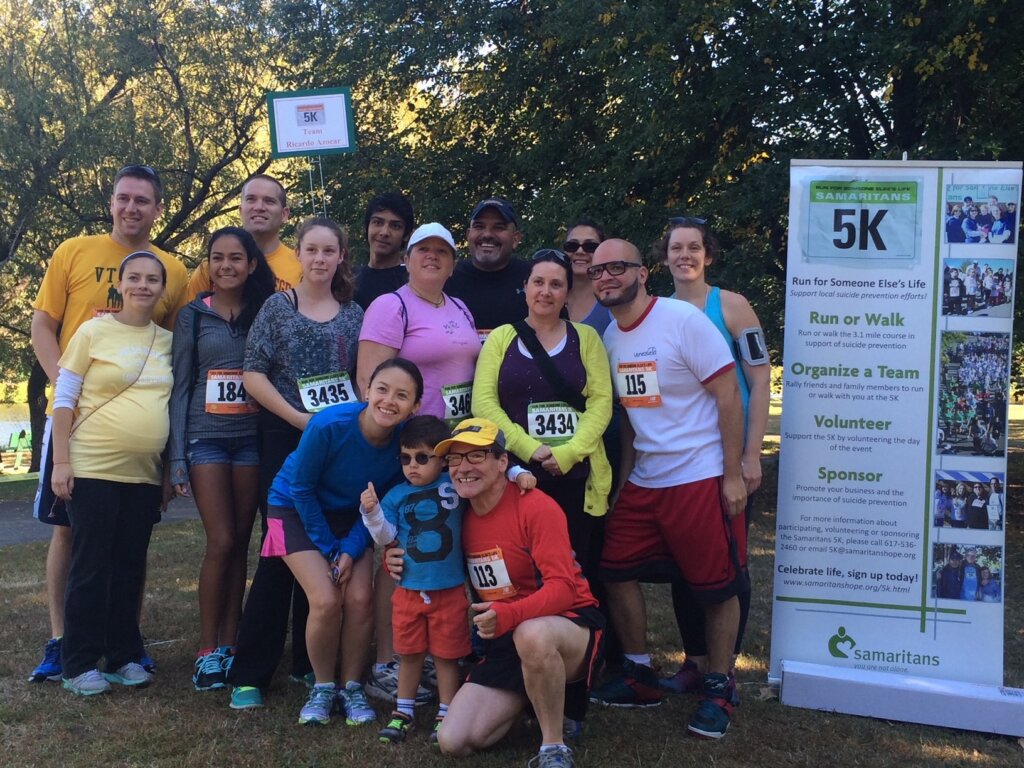
How long have you been participating in the Samaritans 5K Run/Walk for Suicide Prevention?
Ruben: My first run was in 2000 or 2001 after I lost my brother to suicide in May 1997.
Tom: I started running the 5K one year after it began, and I have run almost every year since.
Joe: I lost my nephew to suicide in April 2006, and I ran my first Samaritans 5K that same year.
Why do you choose to run the Samaritans 5K each year? What significance does it have for you?
Joe: My nephew was very talented and so smart, but was suffering with his mental health. We never thought it would come to this, and after losing him, our whole family kept wondering how we could have let this happen. You feel like you are never going to smile again. That’s how I felt for months.
When I went to the 5K for the first time, that was the first thing that made a change in my life. I had been to other Samaritans events, but this was different. It was a place where I could smile and have hope. There was this feeling of community. It authorized me to smile again. It meant so much to me that I ended up becoming co-chair of the 5K for 10 years.
Ruben: Shortly after losing my brother, I moved from Venezuela to the United States to begin my fellowship to practice as an anesthesiologist. Two years later, I lost my father to a home robbery. I experienced two tragedies in a very short time, and a few weeks after, my first son was born. It was such a chaotic time in my personal life. I put my brother’s death in a box to a certain degree. I was in denial. I started running again to get myself through that time, and I needed races to remind myself to run. At one of the races I joined, I saw the pamphlet for the Samaritans 5K, and I told my wife that I needed to do it.
The 5K has become a celebration of my brother’s life for me. It is the one time each year when I can focus on remembering him and feeling happy for the times we had together. The race allows me to take something incredibly difficult to digest and accept and turn it into a time of celebration, happiness, and remembrance.
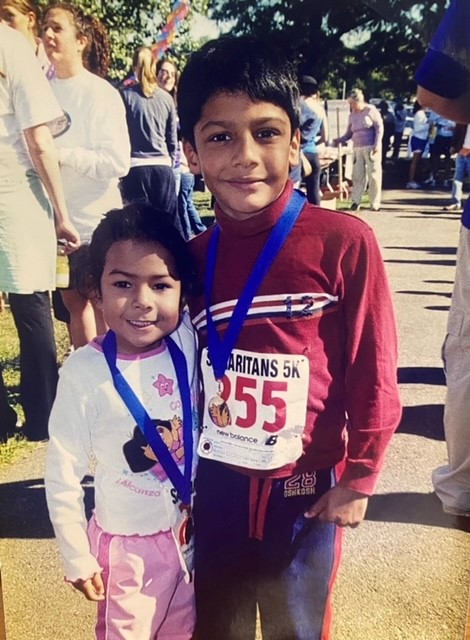
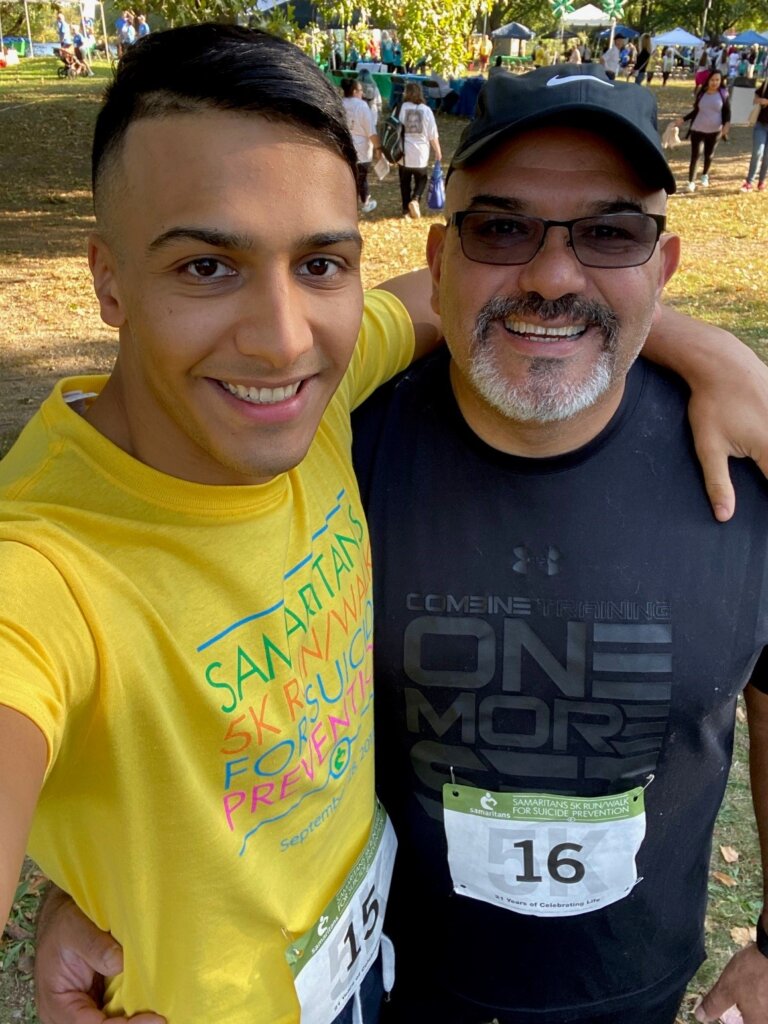
Tom: I got involved in the 5K initially out of curiosity. I wanted to see what it was like — to witness a new attempt at fundraising for suicide prevention work. I have remained involved because I see its impact. I was on the Board of Directors for my alma mater, a Catholic high school, for many years, and I initially joined because there had been a death by suicide. I invited the school to send their track teams to the race.
Many years ago, the boys’ track team ran the 5K, and afterward three of the boys who had done the race went hiking in the afternoon. As they were hiking, they found a note on the ground that turned out to be a suicide note from someone saying goodbye. Having just gone to the 5K, the boys took the note seriously and called the state police, who then rescued the person. This person then went on to get the help and support they needed. I believe the boys were so quick to act because of the experience they had at the race. This isn’t just a 5K, and I’m so happy to have been a part of it — and that I continue to be a part of it.
How have you seen the 5K grow and evolve over the years?
Tom: The first year was understandably a bit chaotic. Samaritans isn’t a running organization, so doing a race for the first time requires everyone to pitch in to make it work. It was very casual and informal — a way to gather people together and introduce them to the organization.
Now the race not only helps people get to know the organization for the first time, but it also helps to support the work that Samaritans does. There are about 200 Samaritans at the race now helping to make everything run smoothly. If you’ve never been around Samaritans, they are people who are interested in you as an individual. You feel safe when they are around. You feel a sense of comfort. It isn’t just a 5K.
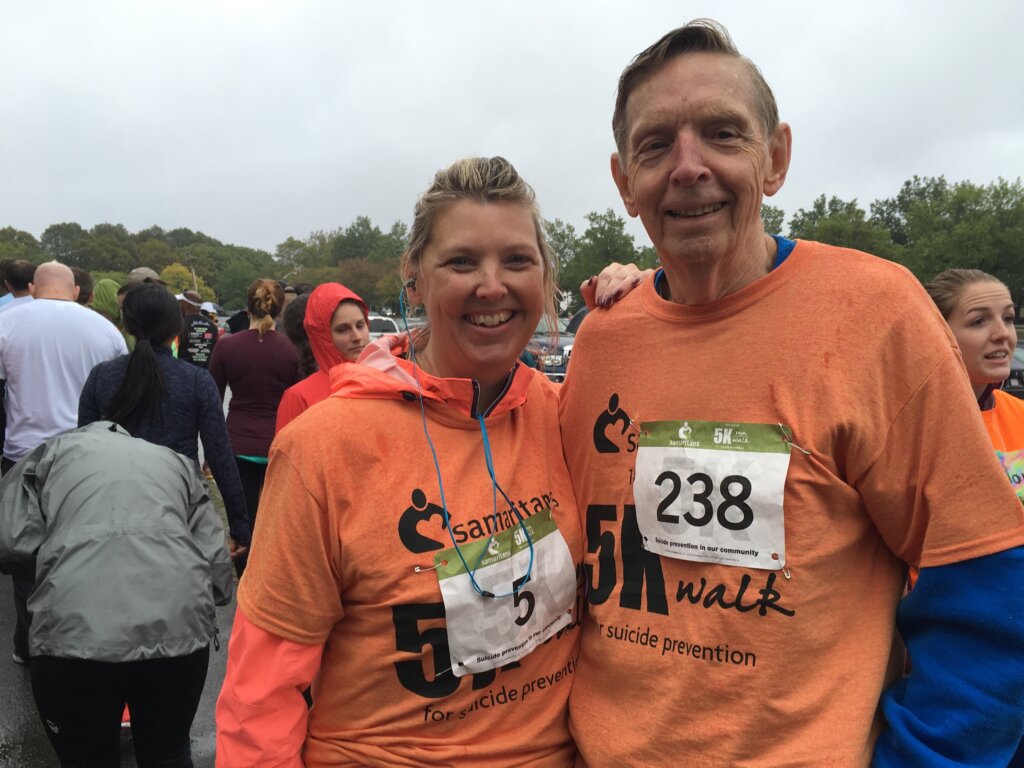
Ruben: At the beginning, we were maybe 50 runners at most. But by around 2010, there was definitely an inflection curve. You started to see new teams coming in and the number of runners really grew. You can see the impact and growth of Samaritans at this race if you participate every year.
Joe: My biggest achievement or stamp on the 5K while I was co-chair was porta potties. I remember when I started, they had four, and there was always a long line of people waiting for the bathroom. After we surpassed 1,000 runners, I made sure we had 15. I always laugh and say, “when you use the bathroom at the 5K, you can think of me.”
But in all seriousness, the biggest thing that I’ve seen change is that when I started, I felt like we were a small group of people who felt like outliers in society. We were survivors of suicide, and we were screaming to want to let people know we exist. By the time I completed my 10 years as co-chair of the 5K, I felt we had arrived. Sure, there is still a stigma, but everyone is now talking about mental health. We didn’t have that ten years ago. We just had ourselves. Now, I feel like when people are at the 5K, they are standing proud and really feel like a community.
People have described feeling a sense of magic at the annual 5K. For you, what does this event look and feel like?
Ruben: My kids have run the race since they were 2 and 4 years old. It’s a family moment we share together. I run it no matter if it’s freezing cold or raining. I love the 5K. You are there with a purpose to remember and celebrate someone you loved, and you do it through exercise that gets your energy up. You get to talk with other people and run together. You are listening to music along the course. There is a fun race for the kids. It’s a fair celebrating the lives of the people we miss.
Tom: Being over 80, gravity has slowed me down over the years, so I’m not the leader of the pack anymore. So, I jog my way through the course with my antennae up for people who may be struggling or who may be in need of someone to talk to. I catch up to them on the course and just ask questions to hear their story. My hope is that they come out of it feeling befriended. The race is amazingly upbeat in spite of the fact that it’s about suicide. It isn’t what one would expect. You feel safe to be among people who are not going to judge — just allow you to be. You get a vibe. It’s difficult to describe, but it is there. I think it’s palpable.
Joe: The thing about the 5K — there is a sense of normalcy. People are walking in a group. There is a sense of community and camaraderie that’s uplifting. I really needed that. I felt like I could be the person I wanted to be at this event, and I felt that other people could do that, too. People are hugging each other, taking pictures, running in teams, cheering each other on. The 5K creates a feeling of community, optimism and happiness that really matters.
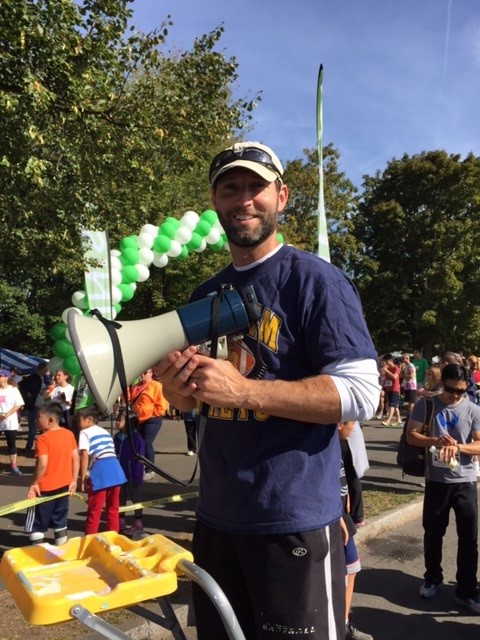
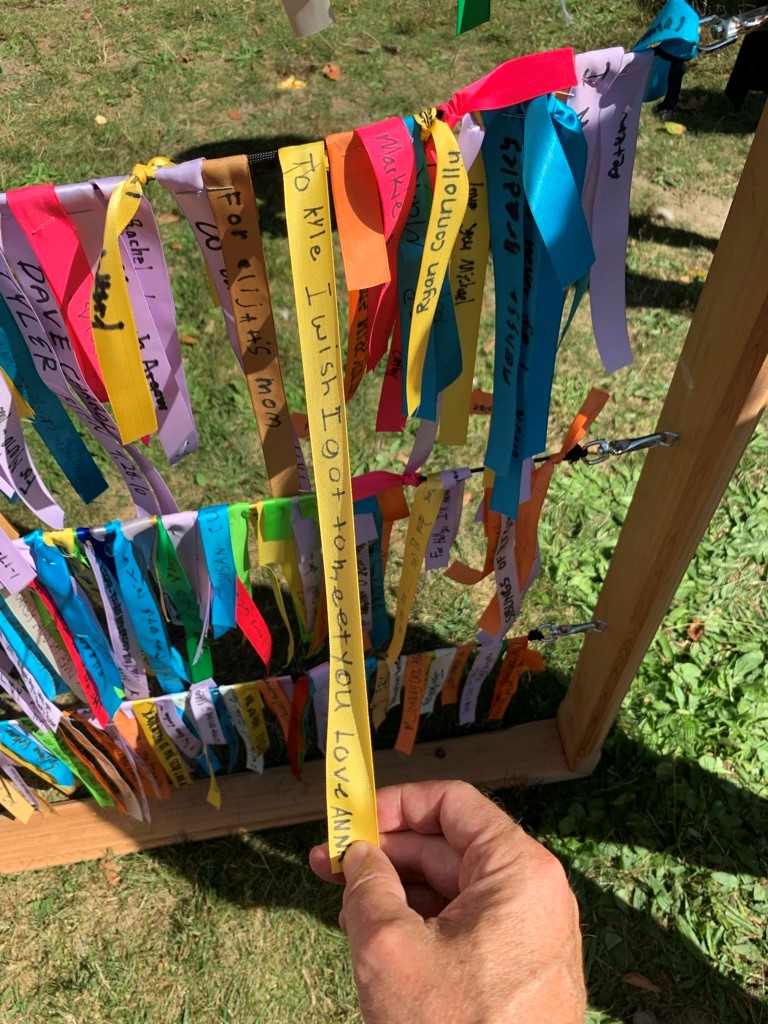
What do you want the world to know about the Samaritans 5K Run/Walk for Suicide, or what do you hope for the race’s future?
Ruben: There is still a stigma to suicide, and I think people who have never participated before may think, “Why do I want to be at an event that is sad when I’m running?” But the truth is that everyone belongs at this race. I would love to see the race grow even more, and I hope we are able to reach out to minority and underserved communities so that they feel welcome, too. The race is an opportunity for people to become aware of the facts of suicide and to celebrate the lives of those lost. Being part of the 5K every year has helped me. I am very grateful to Samaritans for hosting this race every year.
Tom: Usually when people are introduced to the topic of suicide, it is a very heavy, serious, and somber time. This race is a healthy and positive time for anyone who attends. I want to dispel the myth that it’s just a bunch of psychiatrists. This race is not a bunch of people who think they have all of the answers or where you are going to be pushed to give information that you don’t want to give. It is a space that allows people to connect with a person they may have lost and be part of a group of people who may have had a similar experience. You can look around and see people who are moving forward together.
Joe: I believe in the mission of Samaritans, and I believe in the sincerity of the people trying to carry out that mission. If you were lost in the woods and a park ranger came up to you, wouldn’t you ask him for help on how to get out of there? That’s what Samaritans does. It guides people out of their darkness. And the 5K is one vehicle to do that. What separates it from all other events is that it really gives you so much hope and energy on the spot.
Thank you to our entire Samaritans community for the support that has enabled our annual 5K race to endure for so many years. Please join us in celebrating the 25th annual Samaritans 5K Run/Walk for Suicide Prevention on Saturday, September 23. Sign up today.
